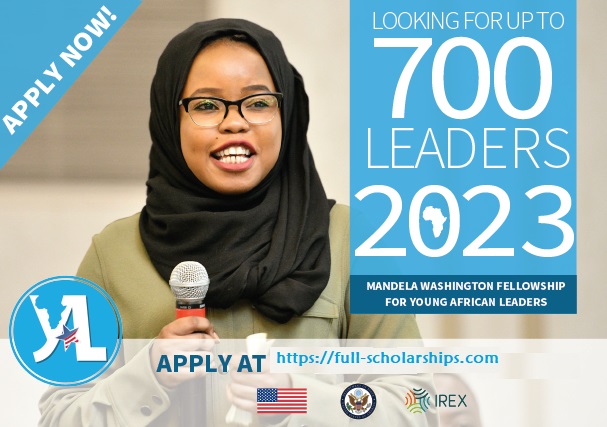Mandela Washington Fellowship (Traineeship) for Young African Leaders
Mandela Washington Fellowship Fellowship Overview
The Mandela Washington Fellowship for Young African Leaders is the flagship program of the U.S. Government’s Young African Leaders Initiative (YALI). Since 2014, nearly 5,100 young leaders from every country in Sub-Saharan Africa have participated in the Fellowship. The Fellows, between the ages of 25 and 35, are accomplished leaders and have established records of promoting innovation and positive impact in their communities and countries. In 2022, the Fellowship will provide 700 outstanding young leaders from Sub-Saharan Africa with the opportunity to hone their skills at a U.S. college or university with support for professional development after they return home.
The Mandela Washington Fellowship will bring up to 700 young leaders to the United States in the summer of 2023 for a comprehensive executive-style program that is designed to build skills and empower Fellows to lead in their respective sectors and communities.
Also, you can apply for more internships from here
Building Your Resume To Apply For The Mandela Washington Fellowship
The English language courses offered by US EMBASSY
Application Instructions Mandela Washington Fellowship
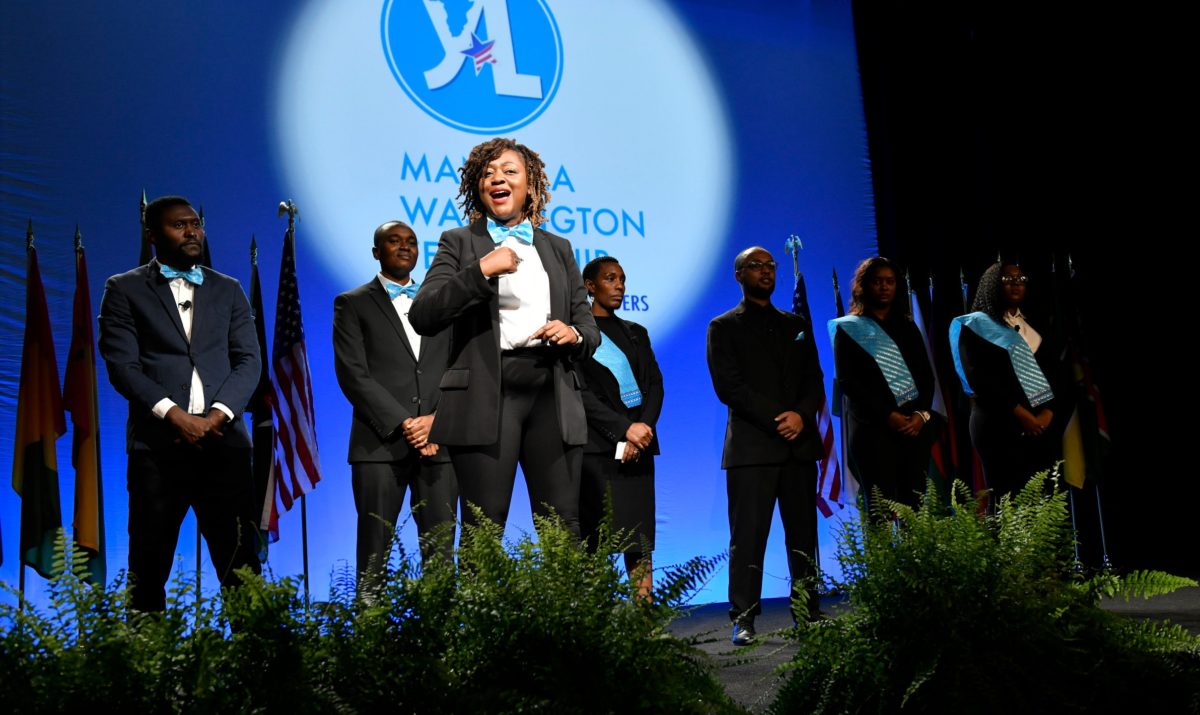
Financial Provisions of the Fellowship
There is no fee to apply to the Mandela Washington Fellowship. If you are selected for the Fellowship, the U.S. Government will cover all program costs.
Financial provisions provided by the U.S. Government will include:
- J-1 visa support;
- Round-trip travel from Fellow’s home city to the United States and domestic U.S. travel as required by the program. Fellows must fly out of their home country within Africa to the United States;
- A six-week Leadership Institute;
- A concluding Summit in Washington, D.C.;
- A limited accident and sickness benefit plan;
- Housing and meals during the program; and
- An optional four-week Professional Development Experience (for up to 100 Fellows).
Please note that the U.S. Department of State, IREX, Institutes, and/or PDE Hosts will not provide funds to cover Fellows’ salaries while they are away from work or funds for personal purchases, such as support for Fellows’ home organizations or gifts for family.
Fellows will be housed in university dorms or similar accommodations and may share a bedroom with another Fellow of the same gender and a bathroom with one or more Fellows of the same gender. Most meals will be provided at campus cafeterias or restaurants, though Fellows may have access to a kitchen to cook some meals. Please note that campus cafeterias will not offer the same types and varieties of foods available to Fellows in their home countries. Care will be taken, to the extent possible, to ensure that any special requirements regarding housing, diet, and other personal activities such as religious observance are satisfied. However, Fellows should understand that the environment will likely be very different from what they are used to at home, and should be open to new experiences.
Fellowship Components
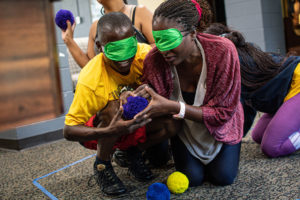
Leadership Institutes
During the Fellowship, the Fellows participate in six-week Leadership Institutes, studying Business, Civic Engagement, or Public Management hosted by U.S. colleges or universities. Throughout the Institutes, Fellows enrich local U.S. communities while sharing best practices.
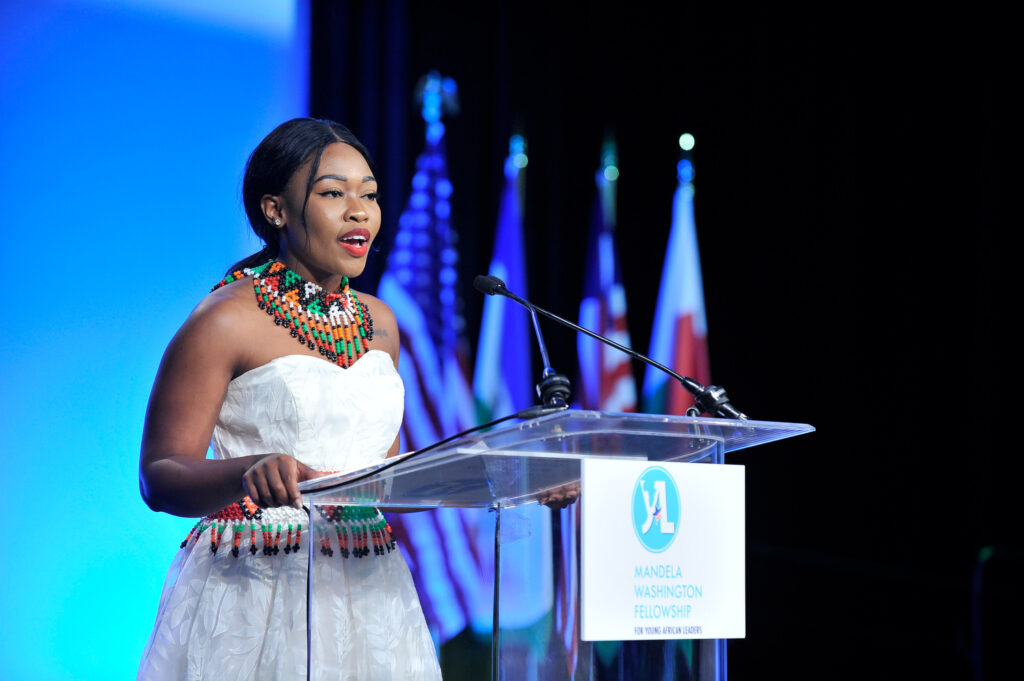
Mandela Washington Fellowship Summit
After the Institutes, Fellows convene for a Summit, where they forge connections with one another and U.S. leaders from the private, public, and non-profit sectors, setting the stage for long-term engagement between the United States and Africa.
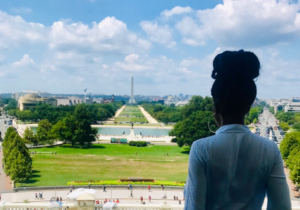
Professional Development Experiences (PDEs)
Up to 100 competitively selected Fellows work with private, public, and non-profit organizations for six weeks. Both Fellows and Hosts benefit from discussing shared issues and challenges in their sectors, broadening their perspectives, and positioning U.S. organizations for international engagement.
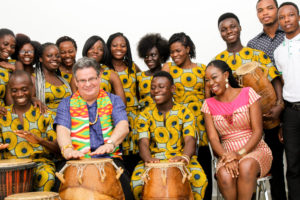
Reciprocal Exchanges
U.S. citizens have the opportunity to apply to travel to Africa to collaborate on projects with Fellows, building upon connections initiated during the program. These partnerships and professional connections are intended to form lasting relationships, expand markets and networks, and increase mutual understanding.
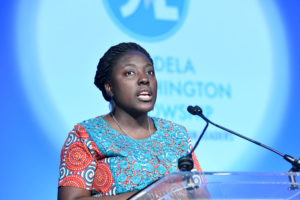
Opportunities for Alumni
Fellowship Alumni continue to build the skills and connections developed during the program through access to ongoing professional development, networking, and collaboration opportunities with support from the U.S. Department of State and affiliated partners.
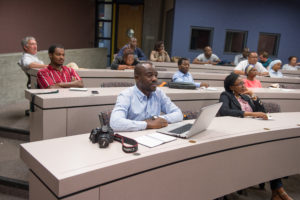
Virtual Programming
The Fellowship leverages stakeholder expertise to deliver a suite of virtual programming for selected candidates and Fellowship Alumni to support their continued leadership development and strengthen their access to networks and resources.
APPLICATION AND ELIGIBILITY INFORMATION
Learn more about how to be a part of the next generation of African leaders!
The Mandela Washington Fellowship does not discriminate against applicants because of race, color, national origin, sex, age, religion, geographic location, socio-economic status, ability, sexual orientation, gender identity, or any other protected characteristic as established by U.S. law. The Fellowship is committed to fairness, equity, and inclusion.
Also, you can apply for more internships from here
Application Instructions Mandela Washington Fellowship
Building Your Resume To Apply For The Mandela Washington Fellowship
The English language courses offered by US EMBASSY
The Fellowship is an unparalleled opportunity to…
- Participate in a six-week Leadership Institute at a U.S. college or university to share your experiences with and learn from U.S. citizens and other Fellows.
- Explore industries beyond your daily work and expand your expertise.
- Participate in a Summit with young African leaders.
- Meet with U.S. Government, civic, and business leaders.
- Strengthen your work through new connections, skills, and ideas.
- Join a continental and global Alumni Network to help you seek innovative solutions to common challenges.
This is an experience of a lifetime. The [Fellowship] has provided a medium for interacting and networking with each other, sharing our dreams and aspirations… I am so privileged to be a part of this generation that will foster change for the betterment of our families, communities, cities, countries, and Africa.”
2018 MANDELA WASHINGTON FELLOWSHIP ALUMNI
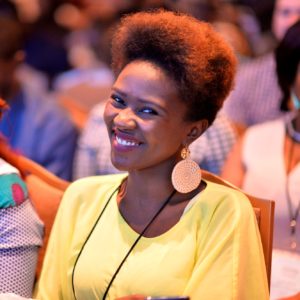
Application Timeline
- August 16, 2022 | Application opens
- September 13, 2022 | Application deadline
- November 2022 – January 2023 | Semi-finalists interviewed by local U.S. embassies and consulates
- March 2023 | Applicants are notified of their status
- May 2023 | Visa processing and Pre-Departure Orientations for Finalists
- June 2023 | Fellowship begins in the United States
Application and Selection Process
Selection Process and Criteria
The Mandela Washington Fellowship selection process is a merit-based open competition. After the deadline, all eligible applications will be reviewed by independent readers. Following this review, chosen semifinalists will be interviewed by the U.S. embassies or consulates in their home countries. Selected semi-finalists will be required to participate in these in-person interviews in their home country within Africa. If advanced to the semi-finalist round, applicants must provide a copy of their international passport (if available) or other government-issued photo identification at the time of the interview. Selected Finalists are required to attend the mandatory Pre-Departure Orientation in their home country within Africa.
Also, you can apply for more internships from here
Application Instructions Mandela Washington Fellowship
Building Your Resume To Apply For The Mandela Washington Fellowship
The English language courses offered by US EMBASSY
Who is eligible to apply?
Applicants will not be discriminated against on the basis of race, color, gender, religion, socioeconomic status, disability, sexual orientation, or gender identity. The Mandela Washington Fellowship is open to young African leaders who meet the following criteria:
- Are between the ages of 25 and 35 on or before the application deadline, although exceptional applicants ages 21-24 will be considered;
- Are not U.S. citizens or permanent residents of the United States;
- Are eligible to receive a United States J-1 visa;
- Are not employees or immediate family members of employees of the U.S. Government (including a U.S. embassy or consulate, USAID, or other U.S. Government entity);
- Are proficient in reading, writing, and speaking English (additional guidance coming for applicants who are deaf);
- Are citizens of one of the following countries: Angola, Benin, Botswana, Burkina Faso, Burundi, Cameroon, Cabo Verde, Central African Republic, Chad, Comoros, Republic of the Congo, Democratic Republic of the Congo (DRC), Cote d’Ivoire, Djibouti, Equatorial Guinea, Eritrea, Eswatini, Ethiopia, Gabon, The Gambia, Ghana, Guinea, Guinea-Bissau, Kenya, Lesotho, Liberia, Madagascar, Malawi, Mali, Mauritania, Mauritius, Mozambique, Namibia, Niger, Nigeria, Rwanda, Sao Tome and Principe, Senegal, Seychelles, Sierra Leone, Somalia, South Africa, South Sudan, Sudan, Tanzania, Togo, Uganda, Zambia, or Zimbabwe;
- Are residents of one of the above countries; and
- Are not Alumni of the Mandela Washington Fellowship.
Please note that Fellows are not allowed to have dependents, including spouses and children, accompany them during the Fellowship.
The U.S. Department of State and IREX reserve the right to verify all information included in the application. In the event of a discrepancy, or if the information is found to be false, the application will immediately be declared invalid and the applicant ineligible.
What are the criteria for selection?
Also, you can apply for more internships from here
Application Instructions Mandela Washington Fellowship
The following criteria will be used to evaluate applications (not in order of importance):
- A proven record of leadership and accomplishment in business, civic engagement, or public service;
- A demonstrated commitment to public or community service, volunteerism, or mentorship;
- The ability to work cooperatively in diverse groups and to respect the opinions of others;
- Strong social and communication skills;
- An energetic, positive attitude;
- A demonstrated knowledge of, interest in, and professional experience in the preferred sector/track; and
- A commitment to return to Africa and apply leadership skills and training to benefit the applicant’s country and/or community after they return home.
FREQUENTLY ASKED QUESTIONS
Why is the 2021 Mandela Washington Fellowship virtual?
Due to the ongoing coronavirus (COVID-19) pandemic and the current challenges of global travel, the 2021 Mandela Washington Fellowship will be virtual. This decision was made with the health, safety, and well-being of Fellows and Fellowship Partners as the highest priority in this unprecedented time.
What does YALI stand for?
YALI stands for the Young African Leaders Initiative.
What is the Young African Leaders Initiative?
The Young African Leaders Initiative (YALI) is a signature effort to invest in the next generation of African leaders. YALI was founded in 2010 and celebrated its tenth anniversary in 2020. YALI was created to support young Africans as they spur growth and prosperity, strengthen democratic governance, and enhance peace and security across Africa. There are three components of YALI: the Mandela Washington Fellowship, Regional Leadership Centers, and the YALI Network.
Why is the 2021 Mandela Washington Fellowship virtual?
Due to the ongoing coronavirus (COVID-19) pandemic and the current challenges of global travel, the 2021 Mandela Washington Fellowship will be virtual. This decision was made with the health, safety, and well-being of Fellows and Fellowship Partners as the highest priority in this unprecedented time. Learn more about how COVID-19 has impacted the Fellowship.
What does YALI stand for?
YALI stands for the Young African Leaders Initiative.
What is the Young African Leaders Initiative?
The Young African Leaders Initiative (YALI) is a signature effort to invest in the next generation of African leaders. YALI was founded in 2010 and celebrated its tenth anniversary in 2020. YALI was created to support young Africans as they spur growth and prosperity, strengthen democratic governance, and enhance peace and security across Africa. There are three components of YALI: the Mandela Washington Fellowship, Regional Leadership Centers, and the YALI Network.
What is the Mandela Washington Fellowship?
The Mandela Washington Fellowship for Young African Leaders, begun in 2014, is the flagship program of the Young African Leaders Initiative (YALI) that empowers young people through academic coursework, leadership training, and networking. In 2021, the Fellowship will provide approximately 700 outstanding young leaders from Sub-Saharan Africa with the opportunity to hone their skills at a U.S. college or university with support for professional development after they return home. The Mandela Washington Fellowship is a program of the U.S. Department of State with funding provided by the U.S. Government and administered by IREX.
What is the YALI Network?
The YALI Network provides members with invaluable opportunities to connect with other leaders in their community and to learn from experts in their field. Opportunities include free online training, professional development, online conversations, and more.
Leadership Institutes
The Mandela Washington Fellowship Leadership Institutes are comprehensive executive-style programs designed to build skills and empower Fellows to lead in their respective sectors and communities through the themes of Business, Civic Engagement, and Public Management. Since 2014, educational institutions in 32 states and the District of Columbia have hosted Fellows for Leadership Institutes.
The six-week Institutes support the development of Fellows’ leadership skills through academic study, workshops, mentoring, networking with U.S. leaders, and collaboration with U.S. citizens. Each Institute also offers insights into U.S. society through site visits and cultural exchange. The Institutes strengthen connections between the United States and Africa and establish enduring partnerships between Fellows, local communities, and private businesses.
Leadership in Business
Leadership in Business Institutes are tailored to Fellows aspiring to become leaders in the private sector or to start their own business ventures in Africa. The Institutes introduce participants to business and entrepreneurial approaches in the United States, including those that address social issues. Institutes also help Fellows build technical and leadership capacity in areas such as innovation and technology, business plan development, financial management, business ethics, the intersection of business with civil society and government, and the role of public-private partnerships. Current Leadership in Business Institutes include:
- Clark Atlanta University – Atlanta, Georgia
- Drake University – Des Moines, Iowa
- Lehigh University – Bethlehem, Pennsylvania
- Northwestern University – Evanston, Illinois
- Purdue University – West Lafayette, Indiana
- Rutgers, The State University of New Jersey – New Brunswick, New Jersey
- University of Iowa – Iowa City, Iowa
- University of Nevada, Reno – Reno, Nevada
- University of Notre Dame – South Bend, Indiana
- The University of Texas at Austin – Austin, Texas
Leadership in Civic Engagement
Leadership in Civic Engagement Institutes are tailored to Fellows who are civically engaged and serving the public through non-governmental organizations, community-based organizations, or volunteerism. The Institutes expose Fellows to civic engagement in the United States while building technical and leadership capacity in areas such as advocacy, strategic planning, organizational development, and the intersection of civil society with business and government. Current Leadership in Civic Engagement Institutes include:
- Appalachian State University – Boone, North Carolina
- Drexel University – Philadelphia, Pennsylvania
- Indiana University – Bloomington, Indiana
- Kansas State University – Manhattan, Kansas
- The Presidential Precinct – Charlottesville, Virginia
- Rutgers, The State University of New Jersey – New Brunswick, New Jersey
- University of Delaware – Newark, Delaware
- University of Georgia – Athens, Georgia
- University of Nebraska-Lincoln – Lincoln, Nebraska
Leadership in Public Management
Leadership in Public Management Institutes are tailored to Fellows who work, or aspire to work, in all levels of government, regional or international organizations, or other publicly-oriented groups and think tanks. The Institutes introduce Fellows to U.S. models and best practices in public management while building technical and leadership capacity in areas such as citizen engagement, resource management, financial management systems, and the intersection of government with business and civil society. Current Leadership in Public Management Institutes include:
- Arizona State University – Phoenix, Arizona
- Bridgewater State University – Bridgewater, Massachusetts
- Georgia State University – Atlanta, Georgia
- Syracuse University – Syracuse, New York
- Texas Tech University – Lubbock, Texas
- University of California, Davis – Davis, California
- University of Minnesota – Minneapolis, Minnesota
- Wayne State University – Detroit, Michigan
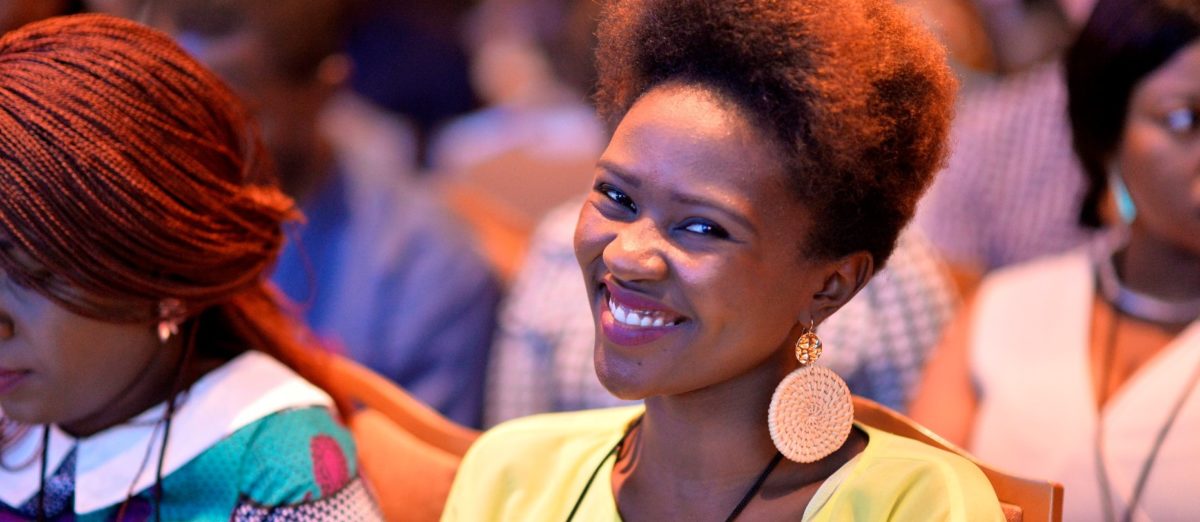
Apply Now for the 2023 Mandela Washington Fellowship!
The application for the 2023 Mandela Washington Fellowship is open from August 16 to September 13, 2022. Learn more about the eligibility requirements and application timeline.
Also, you can apply for more internships from here
Application Instructions Mandela Washington Fellowship
Building Your Resume To Apply For The Mandela Washington Fellowship
The English language courses offered by US EMBASSY


